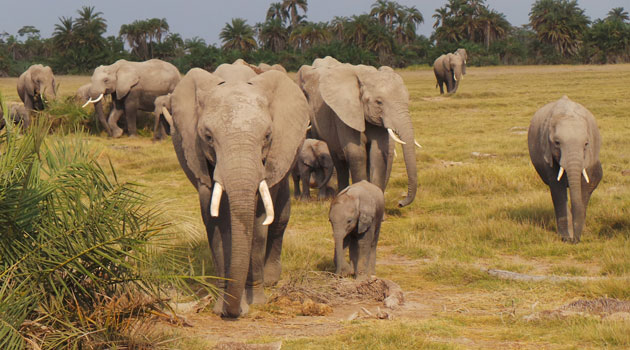
The document was tabled by Kenya at the 17th Conference of the Parties (CoP 17) of the Convention on International Trade in Endangered Species (CITES) in Johannesburg, whose representative said the country was concerned by the threat that wildlife cyber-crime poses to the survival of endangered wildlife/FILE
NAIROBI, Kenya, Oct 3 – At least 183 parties have committed to the Convention on International Trade in Endangered Species of Wild Fauna and Flora (CITES) to engage with online marketplaces and social media platforms in order to crack down on wildlife cyber-criminals.
The document was tabled by Kenya at the 17th Conference of the Parties (CoP 17) of the Convention on International Trade in Endangered Species (CITES) in Johannesburg, whose representative said the country was concerned by the threat that wildlife cyber-crime poses to the survival of endangered wildlife.
“Enforcement operations and prosecutions show that criminals who seek to profit from the illegal trade in endangered wildlife are now utilizing the Internet to enable their criminal activities,” said Kenya.
“It is essential that we have robust laws specifically addressing the unique threat posed by online wildlife crime while also increasing enforcement knowledge and intelligence on this issue. In addition, it is necessary to engage e-commerce platforms who can assist law enforcers but also improve consumer awareness.”
The decision calls on INTERPOL to bring together the enforcement community in order to effectively police online wildlife crime. Parties will now also have the opportunity to convene and review their legislation.
“This decision will lead to a much more cohesive counter offensive against wildlife cybercriminals, in that it brings together enforcers, online market places and social media platforms from across the globe in a common mission to save wildlife,” said Tania McCrea-Steele, Global Wildlife Cybercrime Project Lead for International Fund for Animal Welfare (IFAW).
Parties that spoke in favour of the decision were Syria, Guinea, Israel, India, Malaysia, Senegal, Liberia, Costa Rica, the Maldives, Nigeria, South Africa and the European Union.
The amount of money lost due to environmental crime is 10,000 times greater than the amount of money spent by international agencies on combating it – just $20-30 million, according to a rapid response report published by the United Nations Environment Programme (UNEP) and Interpol.
Poaching of elephants and rhinos and illegal wildlife trade is a major problem across much of Africa threatening the very survival of iconic species.
The vice also fuels corruption, insecurity as well as harming the sustainable economic development of local communities but also national economies.


































